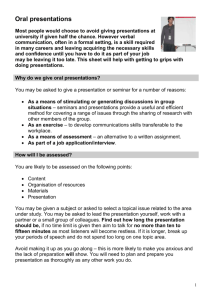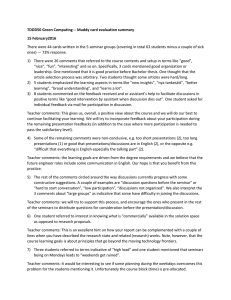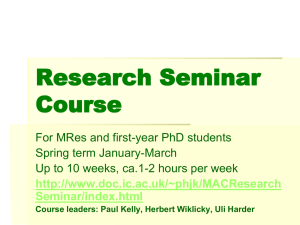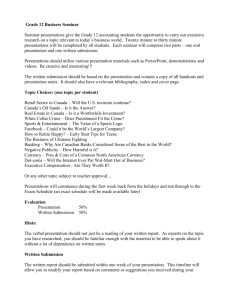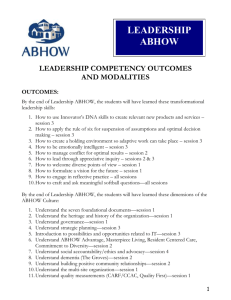BMB 650-Fall 2007
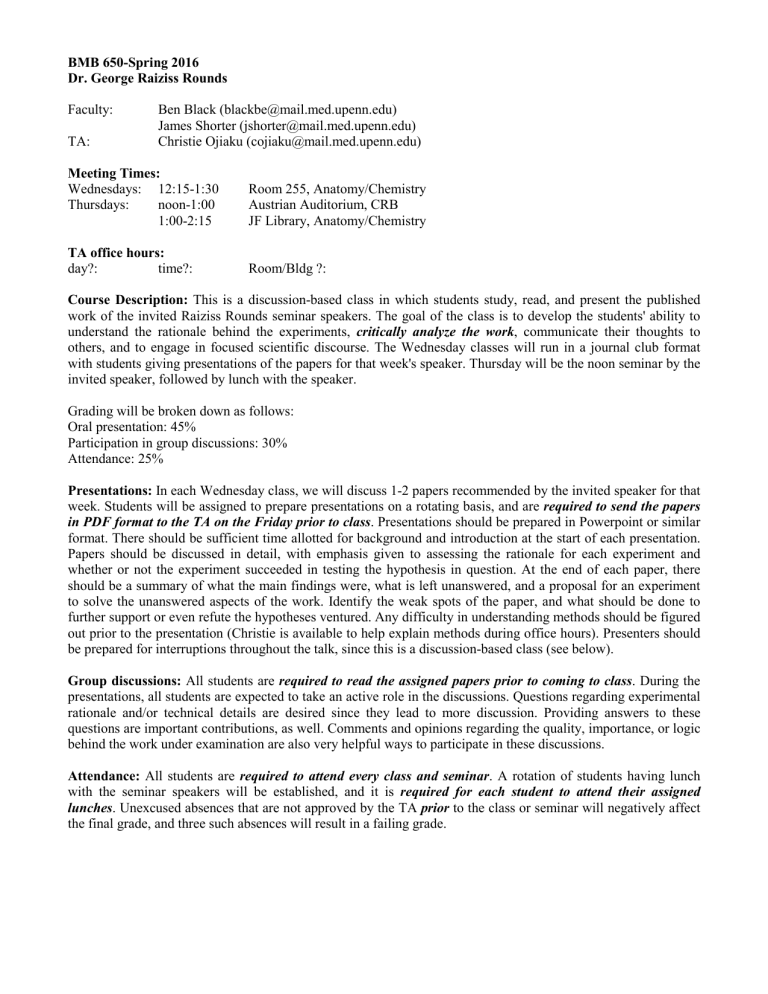
BMB 650-Spring 2016
Dr. George Raiziss Rounds
Faculty:
TA:
Ben Black (blackbe@mail.med.upenn.edu)
James Shorter (jshorter@mail.med.upenn.edu)
Christie Ojiaku (cojiaku@mail.med.upenn.edu)
Meeting Times:
Wednesdays: 12:15-1:30 Room 255, Anatomy/Chemistry
Thursdays: noon-1:00
1:00-2:15
Austrian Auditorium, CRB
JF Library, Anatomy/Chemistry
TA office hours: day?: time?: Room/Bldg ?:
Course Description: This is a discussion-based class in which students study, read, and present the published work of the invited Raiziss Rounds seminar speakers. The goal of the class is to develop the students' ability to understand the rationale behind the experiments, critically analyze the work , communicate their thoughts to others, and to engage in focused scientific discourse. The Wednesday classes will run in a journal club format with students giving presentations of the papers for that week's speaker. Thursday will be the noon seminar by the invited speaker, followed by lunch with the speaker.
Grading will be broken down as follows:
Oral presentation: 45%
Participation in group discussions: 30%
Attendance: 25%
Presentations: In each Wednesday class, we will discuss 1-2 papers recommended by the invited speaker for that week. Students will be assigned to prepare presentations on a rotating basis, and are required to send the papers in PDF format to the TA on the Friday prior to class . Presentations should be prepared in Powerpoint or similar format. There should be sufficient time allotted for background and introduction at the start of each presentation.
Papers should be discussed in detail, with emphasis given to assessing the rationale for each experiment and whether or not the experiment succeeded in testing the hypothesis in question. At the end of each paper, there should be a summary of what the main findings were, what is left unanswered, and a proposal for an experiment to solve the unanswered aspects of the work. Identify the weak spots of the paper, and what should be done to further support or even refute the hypotheses ventured. Any difficulty in understanding methods should be figured out prior to the presentation (Christie is available to help explain methods during office hours). Presenters should be prepared for interruptions throughout the talk, since this is a discussion-based class (see below).
Group discussions: All students are required to read the assigned papers prior to coming to class . During the presentations, all students are expected to take an active role in the discussions. Questions regarding experimental rationale and/or technical details are desired since they lead to more discussion. Providing answers to these questions are important contributions, as well. Comments and opinions regarding the quality, importance, or logic behind the work under examination are also very helpful ways to participate in these discussions.
Attendance: All students are required to attend every class and seminar . A rotation of students having lunch with the seminar speakers will be established, and it is required for each student to attend their assigned lunches . Unexcused absences that are not approved by the TA prior to the class or seminar will negatively affect the final grade, and three such absences will result in a failing grade.
Thursday Seminar Dates/Titles:
January 21
Vilhelm Bohr, M.D., Ph.D. | NIH
“Nuclear mitochondrial DNA damage signaling in aging”
January 28
Song Tan, Ph.D.
| Penn State University
“Structural studies of chromatin complexes”
February 4
Rachel D. Green, Ph.D.
| Johns Hopkins
“The role of the ribosome in specifying mRNA stability”
February 11
Daniel Kaganovich, Ph.D.
| Hebrew University
“Regulating protein aggregation in yeast”
February 18
Tom Muir, Ph.D.
| Princeton University
“Painting chromatin with synthetic protein chemistry”
February 25
Joan W. Conaway, Ph.D. | Stower Institute for Medical Research
“Elongin and the elongin A ubiquitin ligase complex in transcription and the response to DNA damage"
March 3
Joel Richter, Ph.D. | UMass
“Translational control of neurologic disease”
March 17
Samuel I. Miller, M.D.* | University of Washington
“Regulation of the Salmonella outer membrane”
March 24
Lingjun Li, Ph.D.
| University of Wisconsin
“Advancing neuroscience research with a multi-faceted MS-based platform”
March 31
Michael T. Laub, Ph.D.* | MIT
"Specificity and evolution of protein-protein interactions”
April 7
Tao Pan, Ph.D.
| University of Chicago
“mRNA and tRNA modifications in the regulation of gene expression”
April 14
Scott C. Blanchard, Ph.D. | Weil Cornell Medical College
“Single-molecule imaging of structure-function relationships in regulated, multicomponent biological systems”
April 21
Jesse D. Bloom, Ph.D.
| Fred Hutchinson Cancer Research Center
“Mapping the molecular constraints on influenza evolution”
